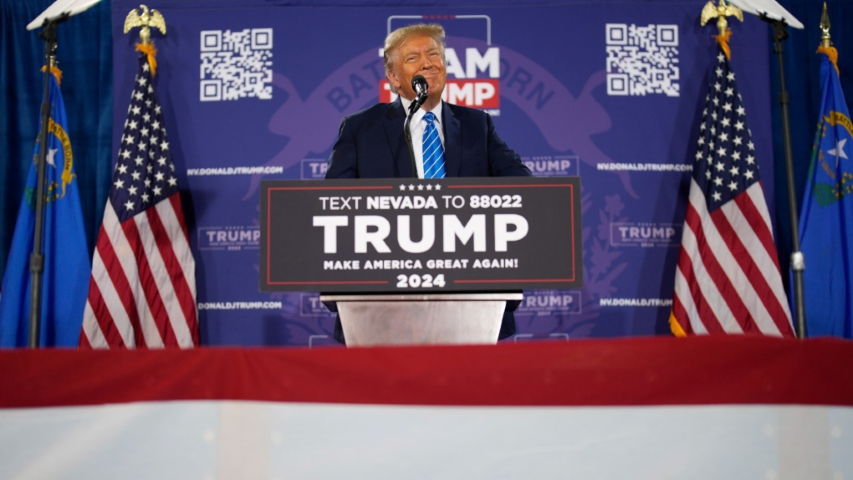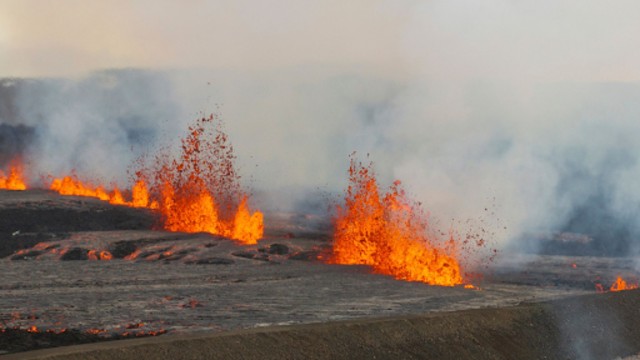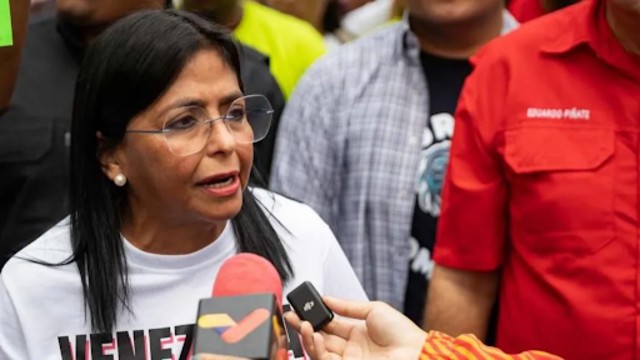
Former U.S. President Donald Trump, now running as a Republican presidential candidate, addresses a campaign gathering on January 27, 2024, in Las Vegas. The event was captured by AP Photo/John Locher.
The Republican National Committee (RNC) is currently in closed-door sessions in Las Vegas, marking a pivotal moment in the early stages of the 2024 GOP presidential nominating campaign. Hopes among some Donald Trump allies to solidify the former president as the presumptive nominee faced a setback as a proposed resolution advocating for this status was unexpectedly removed from the agenda.
This unexpected turn of events occurred in the wake of the first two early-state contests, which have significantly narrowed the Republican field to two prominent candidates—Donald Trump, the frontrunner, and former UN Ambassador Nikki Haley, determined to sustain her challenge.
The RNC's winter meeting, initially anticipated to be uneventful, gained sudden attention when a resolution, presented by Maryland Committeeman David Bossie, surfaced, aiming to designate Trump as the presumptive nominee. Bossie, who served as Trump's deputy campaign manager in 2016 and provided counsel during the second impeachment proceedings following the January 6, 2021, Capitol riot, faced public criticism from some committee members who deemed the proposal premature.
In response to the leaked resolution, Trump promptly rejected the idea through his Truth Social platform, emphasizing the importance of party unity. Despite possessing more than enough votes to proceed, Trump urged against it, influencing the removal of the resolution from the committee's agenda.
In an unusual departure from past practices, the entire RNC meeting is closed to the press, lacking the customary open general session. This secretive approach has raised eyebrows, considering the historical openness of these gatherings.
Contrary to popular belief, there is no formal RNC rule preventing the declaration of a presumptive nominee, and historical precedent exists for such a move. In 2016, then-RNC chairman Reince Priebus declared Trump the presumptive nominee after the Indiana primary.
However, the Associated Press strictly uses the term once a candidate secures the necessary delegates for a majority vote at the national party conventions, a milestone expected after more states have cast their votes—possibly not until March.
RNC Chair Ronna McDaniel asserted last week that Haley's nomination path appeared improbable given Trump's decisive victory in the Jan. 15 Iowa caucuses and the Jan. 23 New Hampshire primary. McDaniel urged party unity and a focus on defeating Joe Biden in a Fox News interview following the New Hampshire primary.
In response, Haley criticized the RNC on NBC's "Meet the Press," accusing the committee of not being an honest broker and emphasizing the need for the American people to have a say in the nominee selection process. She argued that such decisions should not be made based on just two states, highlighting the importance of broader public participation.















